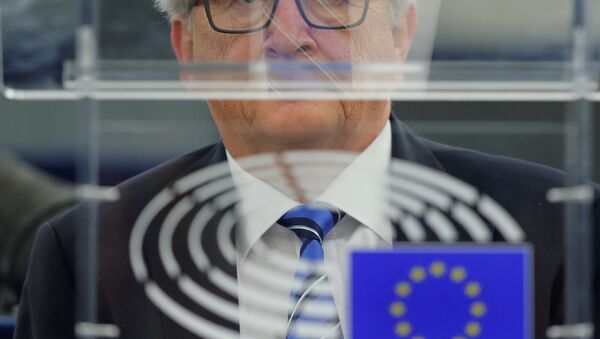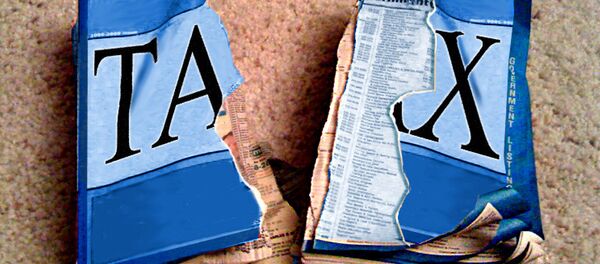Juncker was minister of finance in Luxembourg from 1989 to 2009, and prime minister from 1995 to 2013, during which time Pepsi, IKEA, AIG, Coach, Deutsche Bank, Abbott Laboratories and nearly 340 other companies secured secret deals from Luxembourg that allowed many of them to slash their global tax bills.
.@JunckerEU says we share same fight for fair taxation. What about #Luxembourg's unfair tax practices?https://t.co/SfAchjnmAb pic.twitter.com/HUhIviH8CX
— Greens in the EP (@GreensEP) 30 May 2017
Tax scandals, such as Offshore Leaks (2013), Lux Leaks (2014), Swiss Leaks (2015), Panama Papers (2016), Bahamas Leaks (2016) and the Malta Files (2017) revealed how worldwide a new business sector of systematic tax evasion and tax avoidance as well as money laundering has emerged over time.
"Although the complicity of some European member states in this game was proven in the European Parliament' inquiries, so far nobody has been held accountable for these scandals. Even 'Mister Clean' Jean-Claude Juncker, former Finance and Prime Minister of Luxembourg, refused any responsibility whilst it is generally recognized that Luxembourg issued tailored tax rulings to multinational corporations and thus actively helped to dodge taxes elsewhere," said the Greens/European Free Alliance (EFA) Group in the European Parliament in a statement.
Preventing tax avoidance via non-EU countries | EU countries adopt new rules to block tax avoidance. Press release➡️https://t.co/Cq4s8WNcBY pic.twitter.com/i16U4vhjOw
— European Commission (@EU_Commission) 29 May 2017
The Greens/EFA published a report showing how Luxembourg attempted between 2003 and 2005 — when Juncker was the grand duchy's prime minister — to block a very important reformed to fight tax evasion: the Savings tax Directive, which would automatically send tax information among member states.
In the end, according to the Greens/EFA, Luxembourg managed to obtain an important concession: instead of automatically exchanging information, it was authorised to levy a withholding tax deducted from interest earned in Luxembourg, partially passed on to the EU country of residence.
"The behavior of Luxembourg was even more detrimental to its neighbors as the Grand Duchy tolerated the creation of a tax avoidance business on its territory helping wealthy individuals to formally move the ownership of their funds into offshore companies located in tax havens and thus escaping the scope of this legislation," the group said.
"We will be asking Mr. Juncker whether he is willing to take responsibility for these practices and if we are really committed to make tax justice happen in Europe," the group said ahead of Juncker's grilling by the Committee of Inquiry into Money Laundering, Tax Avoidance and Tax Evasion (PANA) of the European Parliament.



